The Christmas present that could tear your family apart
- Published

This Christmas it's likely that more people than ever before will spit into a tube, or swab some cheek cells and send the result off for DNA analysis. Millions in the US have already done it, and the craze is spreading. But what happens when you find out a lot more than you were expecting?
Three years ago, Jenny decided to take a DNA test "just for fun". The youngest of five children, she had always been intrigued by stories about her ancestors. As a teenager she loved looking at old photographs with her grandfather and over the decades she had painstakingly pieced together her family tree.
Once her children were grown and she had more time on her hands, Jenny, a freelance writer from Connecticut, began going to genealogical conferences and workshops to improve on her methodology. "Everyone was talking about doing these DNA tests but I wasn't keen - it all sounded very scientific and I have no head for that."
Yet Jenny was curious to see what the test might reveal about her ethnic background, so she sent off for a kit and gave it a go.
There were no surprises when the results revealed her heritage as largely British, including Scottish, with a smattering of genes from Scandinavia. "Nothing exotic," she laughs.
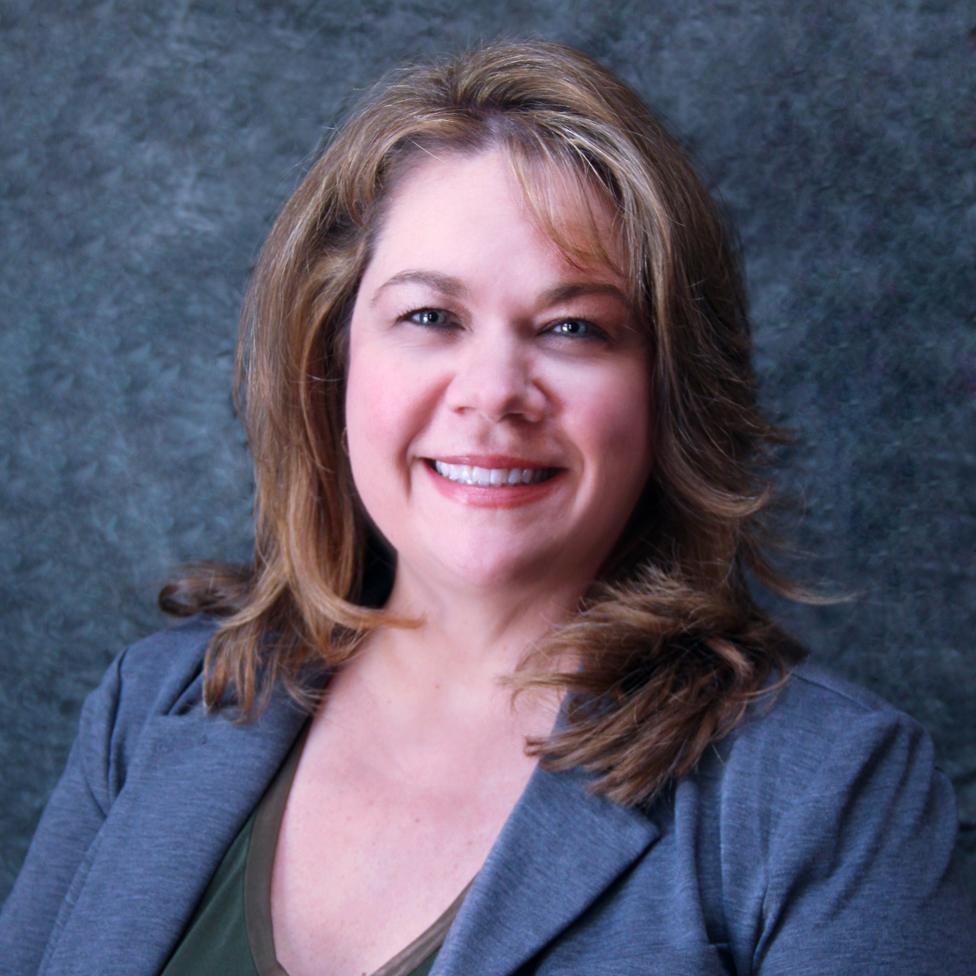

But a year later she did a test with another genetic testing company and persuaded her brother to do one too. This time there was a surprise. The email with the results included a chart that she struggled to understand - but something written underneath immediately caught her eye: "Estimated relationship: half-sibling."
Jenny assumed her brother had done something wrong when he took the test. She decided that he must have left the kit lying in the sun or forgotten that you are not supposed to eat or drink an hour before providing the saliva sample.
"I was mad at him," says Jenny. "I thought - how typical! I asked him to do one little thing and he still couldn't get it right. I tried to rationalise it but at the same time there was this pit in my stomach."
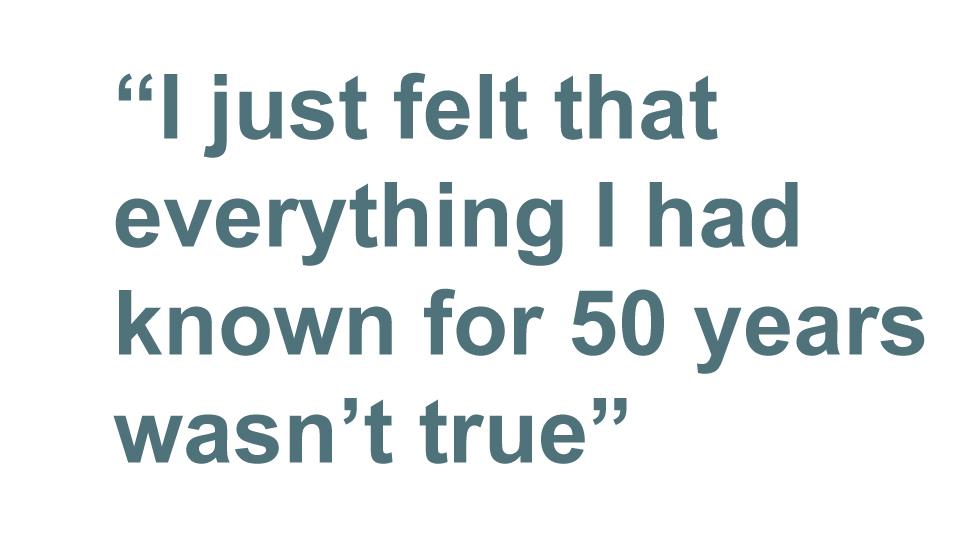
Jenny searched for answers online and learned about the centimorgan - a unit of genetic linkage. Siblings typically have 2,500 centimorgans or more in common but Jenny only shared 1,700 with her brother.
Tormented by doubt, she asked her father's cousin, a woman in her 90s, to take the test too. "She had helped me a lot with genealogy, we had traded photographs and she was a very sweet person," says Jenny. "I feel terrible that I didn't tell her the real reason. I said it would be a fun thing to do and promised I'd send her the report."
Six weeks later Jenny was sitting in bed with her iPad when the results popped into her inbox. Unlike her brother, she shared no DNA with her father's first cousin.
"I could just feel my heart breaking," says Jenny, her eyes filling with tears. "I thought, 'Oh, my god it's true!' My poor husband sleeping next to me had no idea what was going on. I have never felt so alone."
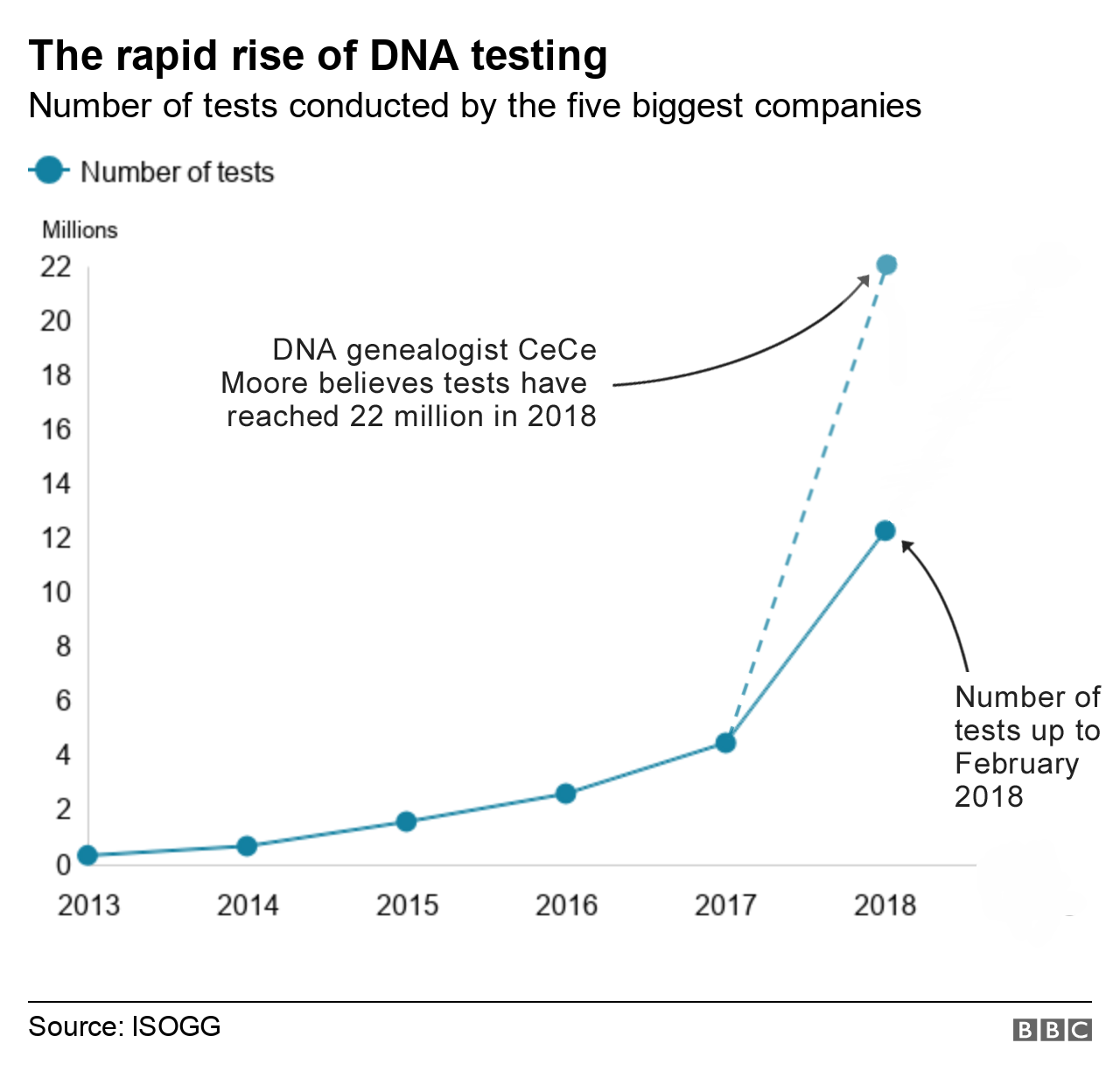
Family history has been described as the second biggest hobby in the US after gardening, and as the second biggest activity on the internet after pornography
The price of DNA testing kits has plummeted - in the US they're available for less than $100, while one UK high street chain sells them for £80

Jenny told nobody about her findings for several months. Instead she sent DNA kits to her remaining brother and two sisters and coaxed them into giving saliva samples. She had always thought she looked different from them - less tall and less dark - and the results confirmed that she was the odd one out.
Jenny also talked her 86-year-old mother into taking the test. "She was my mom of course, but I wanted irrefutable proof because finding out that the man who had raised me wasn't my dad shook me to my core," Jenny says. "I just felt like everything I'd known for 50 years wasn't true any more."
A year later she summoned the courage to bring the subject up with her mother, who was frail and suffering from cancer. As they sat drinking tea, Jenny explained that the DNA test had thrown up some weird results.
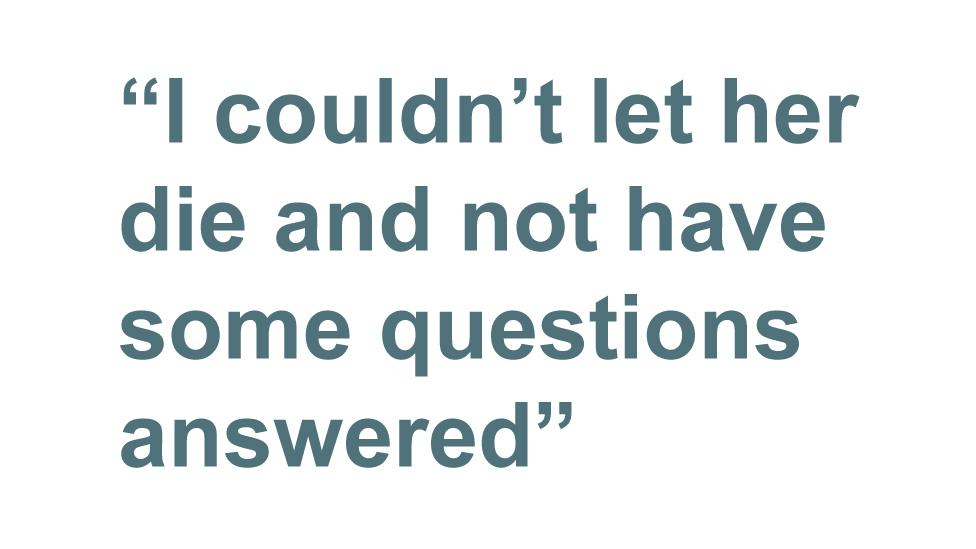
"My mom was holding a teacup, she had it up to her mouth and was about to drink but she just stopped and looked at me and her hands started to shake," recalls Jenny.
"She was a Boston woman, a strong proud Yankee. I don't think I ever saw her cry - so to watch her shaking like that was so hard," adds Jenny. "I really agonised about asking her - I didn't want to upset her, but I also thought that I couldn't let her die and not have some questions answered because I knew I'd always regret it."
There was a business owner who lived in the same town as Jenny's family and she remembers that he had always been very friendly with her mother. She asked if this man was her dad. "I said his name," says Jenny. "Her eyes got huge and she asked me how on Earth I'd worked that out."
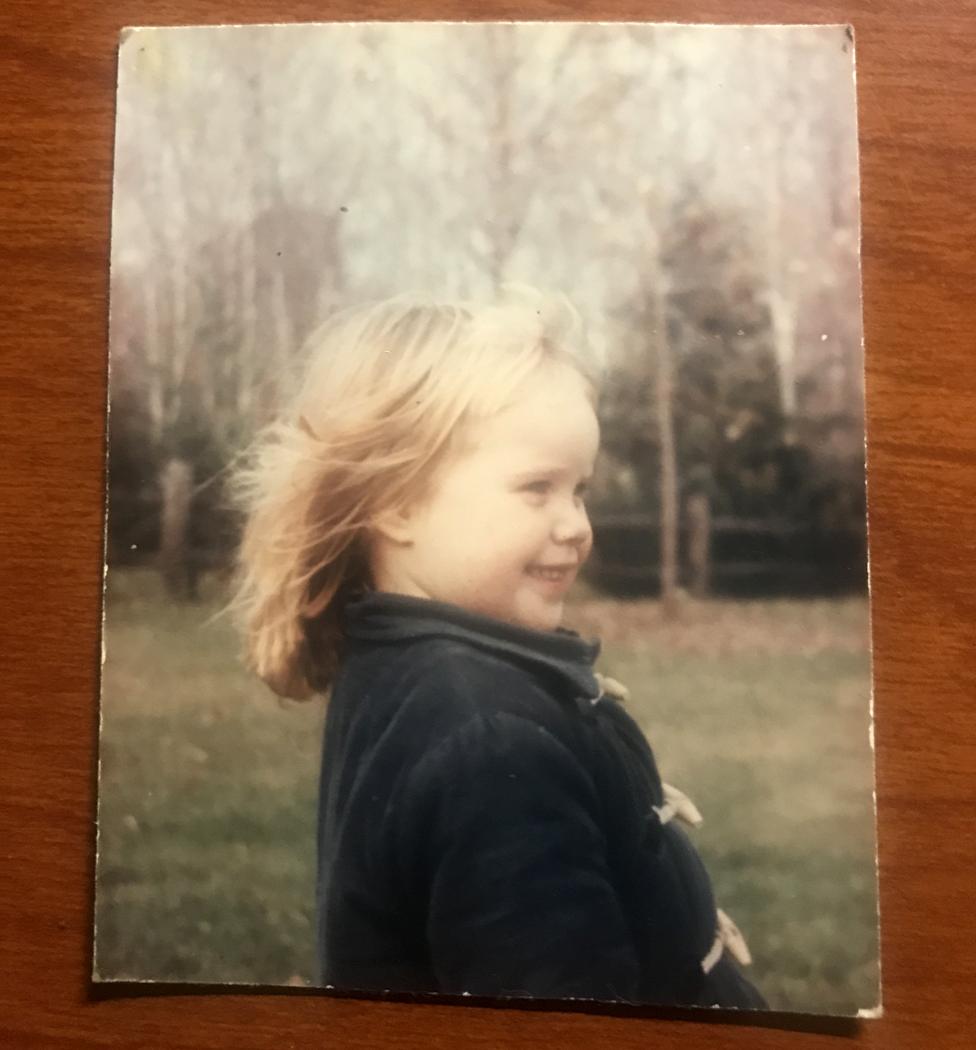
Jenny had always realised that she was fairer than her siblings

Jenny's mother admitted she had hoped to take the secret with her to her grave. She had never told her husband about the affair, so the man who raised Jenny was unaware he was not her biological father - something which Jenny now finds "incredibly reassuring". She describes her father, an engineer who died nearly a decade ago, as "an introverted, innocent man" and she feels that he would have been devastated to learn the truth.
"It was like a new bereavement. I went through all these stages of grief," she says. "It was something out of my control, there was no going back and no way to fix it."
Jenny found some solace in a book, The Stranger in My Genes, written by Bill Griffeth, a financial journalist who had a similar experience.

Find out more
Listen to Lucy Ash's report, DNA, me and the family tree for Crossing Continents, on BBC Radio 4, at 11:00 on Thursday 20 December 2018

"He hates it when I say it, but he really saved me," Jenny says.
"Without his book, I think I would have gone nuts or done something destructive in my life. I contacted him, and he encouraged me to write a diary about my feelings and he even read the stuff I sent him which was very kind."
Bill, the co-anchor of CNBC's Nightly Business Report, says his life was turned upside in 2012 after a DNA test. He learned that his Y chromosome didn't match his own brother's and that his biological father had died 13 years earlier.
"I never met my father," he tells me over lunch at his home in New Jersey. "I never shook his hand, never hugged him never heard the sound of his voice. Never saw him walk never heard him laugh."
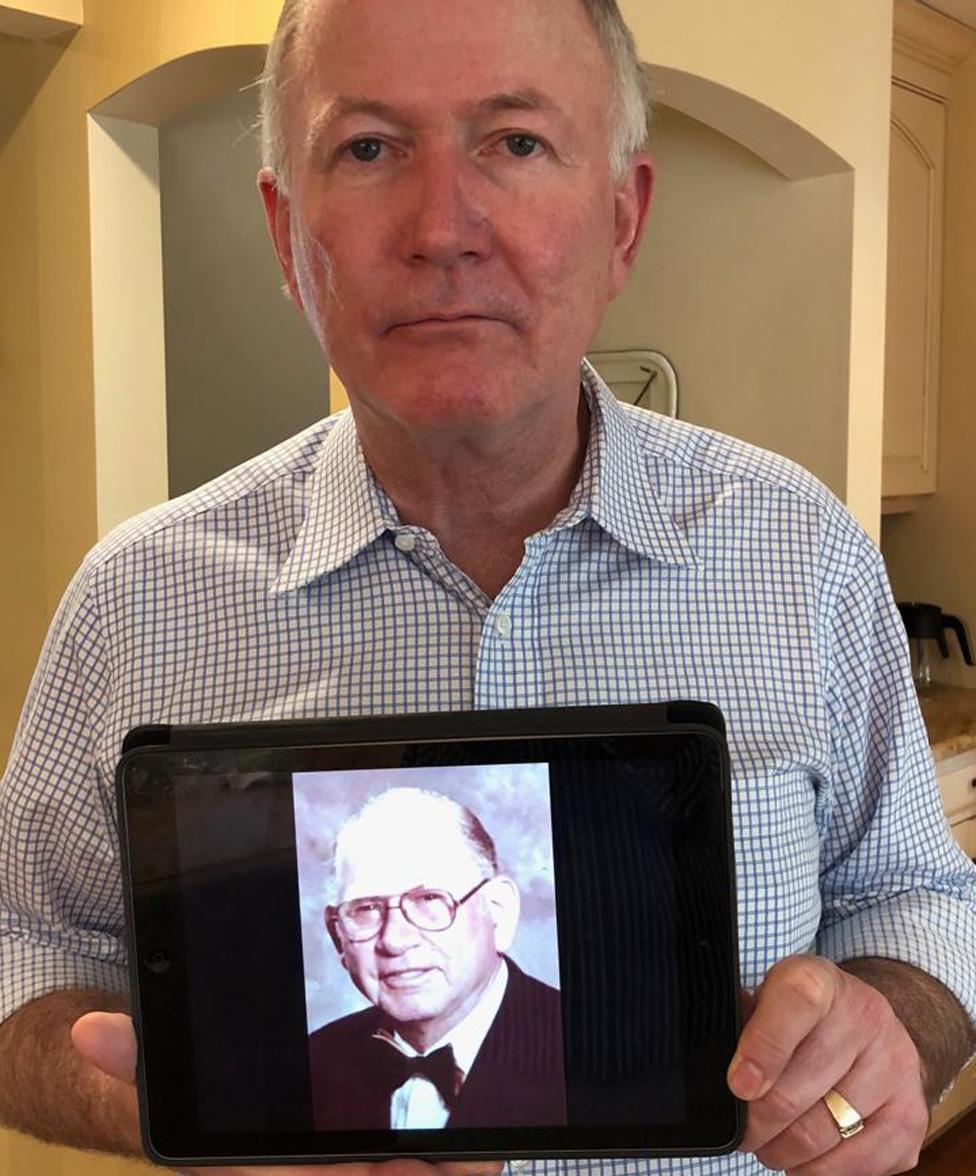

Like Jenny, Bill was fascinated by his family tree and had discovered that one of his ancestors was executed during the Salem witch trials of 1692. Researching his roots was "something of an obsession" and for years he had visited graveyards, cathedrals, libraries and courthouses all over the country to gather more information.
When Bill learned that he was not related to the man he'd known as his father - that he was not in fact part of the Griffeth clan - he felt an overwhelming sense of loss.
"It was all a big lie, and I was so angry. And I was so sad all at the same time," says Bill. "How ironic that I'm the unofficial historian of our family. I've spent years learning about all of these people. And it was taken away from me just like that."
Like Jenny, Bill also faced the unenviable task of confronting an elderly mother about her infidelity decades earlier. "The last thing we would believe about my sainted mother was that she had strayed," he says. "She was a devout Christian. She was a teetotaller. She was the classic church lady."
Bill's mother was 95 when they had this awkward conversation and she reluctantly admitted she "made a mistake" by having a brief fling with a former boss.
"I didn't want this to define our relationship in her final years. Unfortunately, I think it did, though," he says. "There was sort of a coolness between us after that. I think she was mightily hoping that she could slip out the back door at the end of her life without this ever being exposed."

Stories like Bill's and Jenny's are far from unique - across the country, do-it-yourself genetic testing kits are dragging skeletons out of the closet in their hundreds, if not thousands.
Catherine St Clair, a county official from Conroe, Texas, was given a DNA test for her 55th birthday by her older siblings. She too found out her biological father was a man she had never met but - unlike Bill and Jenny - her mother was no longer alive, so there was no way of getting answers to her questions.
She was distraught, and was struggling to accept the test results until she spoke to another woman in the same situation and decided to set up a self-help group. A year-and-a-half later Catherine's group has almost 4,100 members.
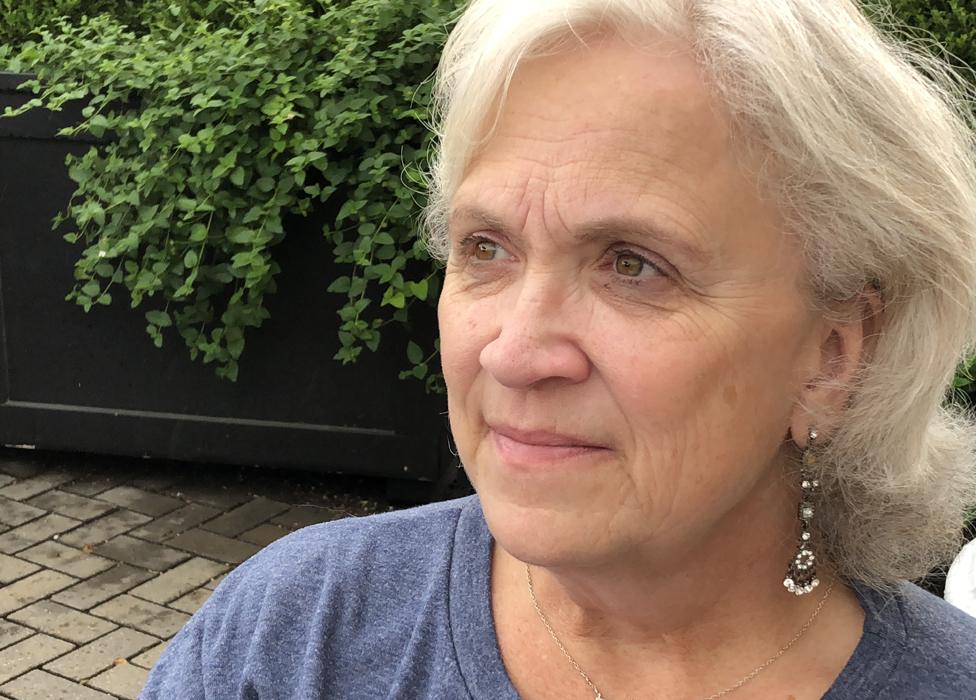
It is called DNA NPE Friends, external - the last bit stands for Not Parent Expected. Some members were the product of secret affairs, in some cases their mothers were raped, others were never told that they had been adopted as babies or small children.
I am invited to one of the group's meetings in a Mexican restaurant in Waco, Texas. A dozen people sit around a table at the back of the room eating tacos and having intense conversations. Most have driven hours to get here in pouring rain from all across the state. Catherine encourages the shyer members to speak, makes the odd joke, hands out tissues and tells tearful women not to think of themselves as anybody's "dirty little secret".
I meet Betty Jo Minardi, an online sales director with long dark hair who is accompanied by her husband, Angelo. Two-and-a-half years ago she took a DNA test which showed that her brother was only a half-brother. Like Jenny, she then got her father's first cousin tested and found that she shared no DNA with him.
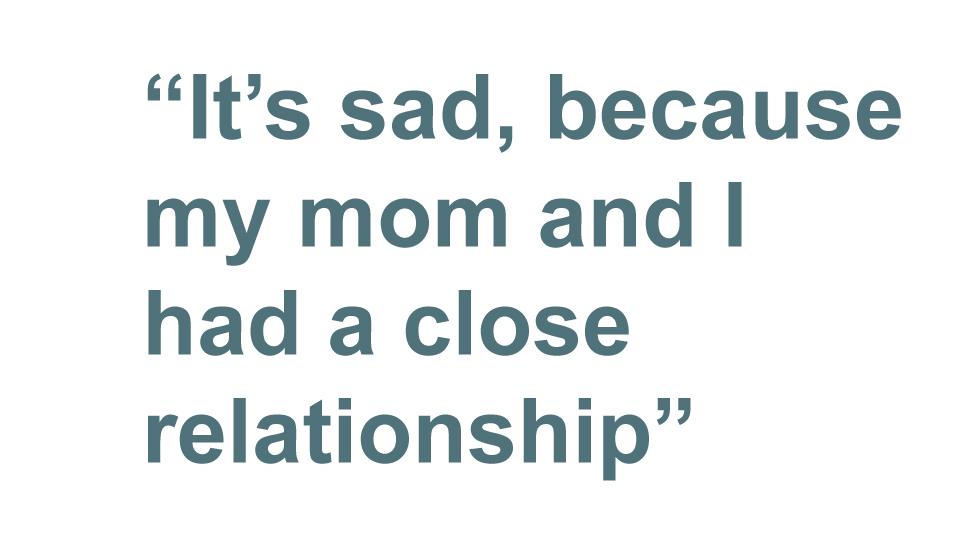
So she phoned her mother in Minnesota and gently told her the results. Betty Jo's mother immediately said the testing company, Family Tree DNA, must have made a mistake. The next time the subject was raised, her mother, flanked by Betty Jo's half brother and sister, angrily accused her of lying. Her half-brother said Betty Jo "needed to spend some time on a couch" because she was mentally unbalanced, while her sister wrote a Facebook post saying the DNA tests were untrustworthy and that only the FBI could provide accurate genetic data.
Betty Jo wanted to be absolutely sure that her dad could not be the man who raised her, so she went one step further. Although he had died three years earlier, she had some of his hair and she sent it to a lab to do a paternity test. The analysis came back saying they shared 0% DNA.
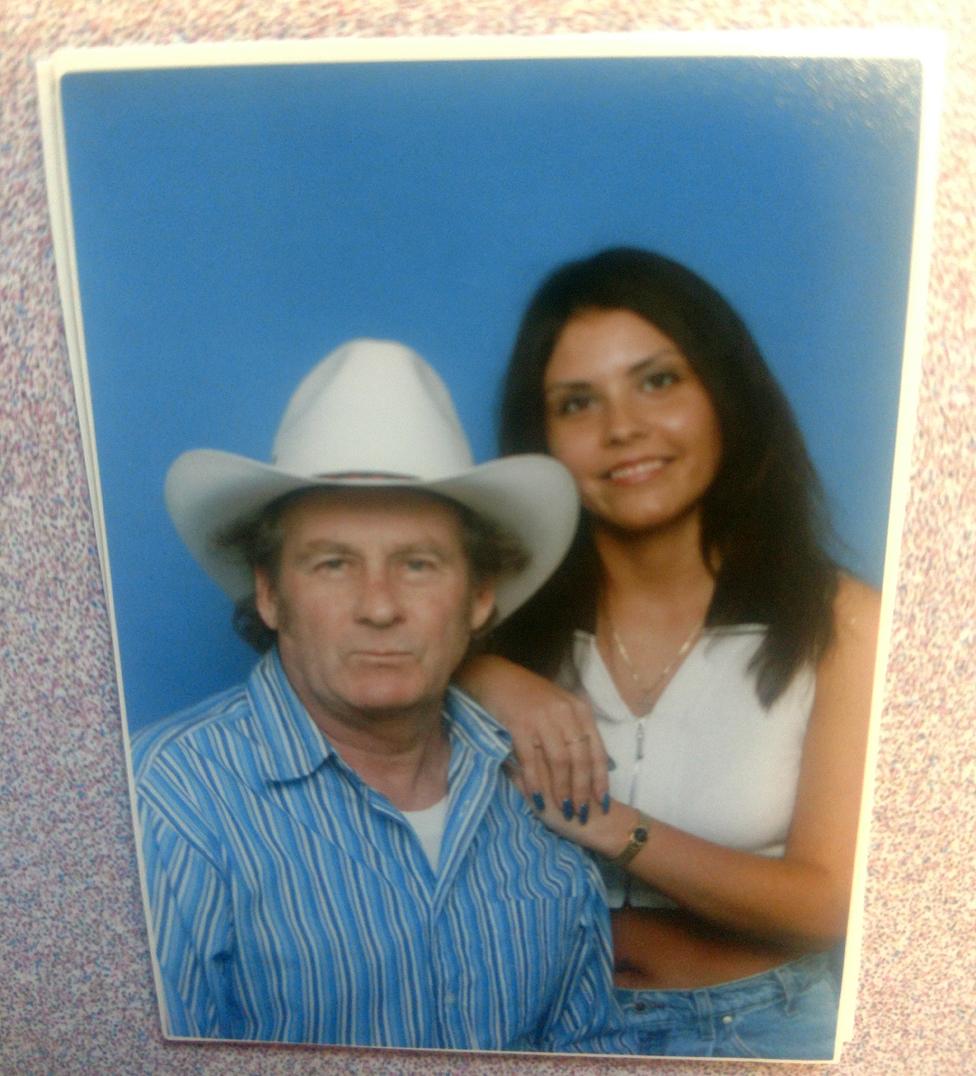
Betty Jo and her father

At this point her half-sister said what she was doing was "evil" and in a family group text message Betty Jo was told, "You no longer exist to us." Since then Betty Jo has not spoken to her half siblings or her mother.
"It's sad, because my mom and I had a close relationship when I was growing up," she says. "She used to call me every week and now - never. I cried every day for months, I was depressed, had a sort of breakdown. Christmas is an especially difficult time of year, but my kids and my husband have been really supportive and I'm much better now."
Betty Jo believes her mother's pride, her Christian faith and the image of herself as "a perfect wife and mother" prevent her from admitting she had child out of wedlock. "I said if she didn't want to talk about it, she could give a statement to her attorney for me to read after her death," says Betty Jo. "But she didn't even bother to reply."
Some of the DNA sites have linked Betty Jo to third and fourth cousins of Mexican descent. With her dark hair and eyes and olive skin, she believes that her biological father may well have come from south of the Texas border. Her mum and the father who raised her are of northern European descent.
But Betty Jo is not motivated by curiosity alone. She says it would be helpful to know her ancestry for medical reasons. She says she suffers from a thyroid problem and that she and her daughter share another condition that doesn't exist on her mother's side of the family.

People like Jenny, Bill, Catherine and Betty Jo - mostly in their late 40s or 50s - are all pretty much in the same boat. Their mothers got pregnant by someone who wasn't their husband - whether willingly or not. It's hard to come to terms with, but the practical consequences tend to be limited by the fact that most of the parties involved are either very elderly or dead. So what happens when a DNA kit reveals the secrets of those who are younger?
Lawrence (not his real name) also contacted Catherine St Clair and she put him in a special category - not for children, like most of those in her Not Parent Expected group, but for fathers.
His daughter, who had long been keen on family history, had been pleading with him to buy a DNA test and he had resisted, put off partly by the $99 price tag. Then one day he gave in.
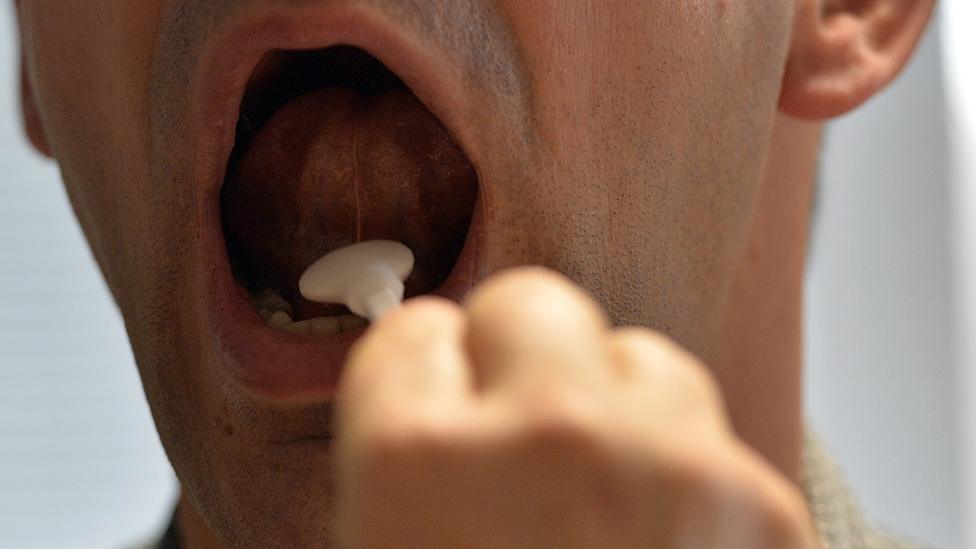
Some testing kits use saliva, others use cells from the inside of the cheek
When Lawrence's wife heard this she "looked like she'd got hit by a truck", Lawrence says.
She turned pale, he remembers, and "had this horrible expression on her face, like when somebody is caught stealing something".
That night she closed their bedroom door and confessed to a long affair with a man she had met at work. A paternity test, two months after their daughter was born, had confirmed her hunch - the little girl was not her husband's child. She had kept that secret for 15 years.
Numb with shock, Lawrence phoned his mother and said he was going to walk out on both his wife and daughter. But his mother stopped him.
"My mom said, 'Your daughter is innocent in this. She had nothing to do with it. You love her. And biology doesn't change that.' So luckily, she talked some sense into me," says Lawrence. He still left his wife, who he felt was unrepentant, but remained a father to his daughter.
Lawrence says that for a long while he felt utterly alone, because men - in his experience - are reluctant to talk about marital problems. Just one friend admitted that his wife had had affairs, but a paternity test had revealed that he was the biological father of his children.
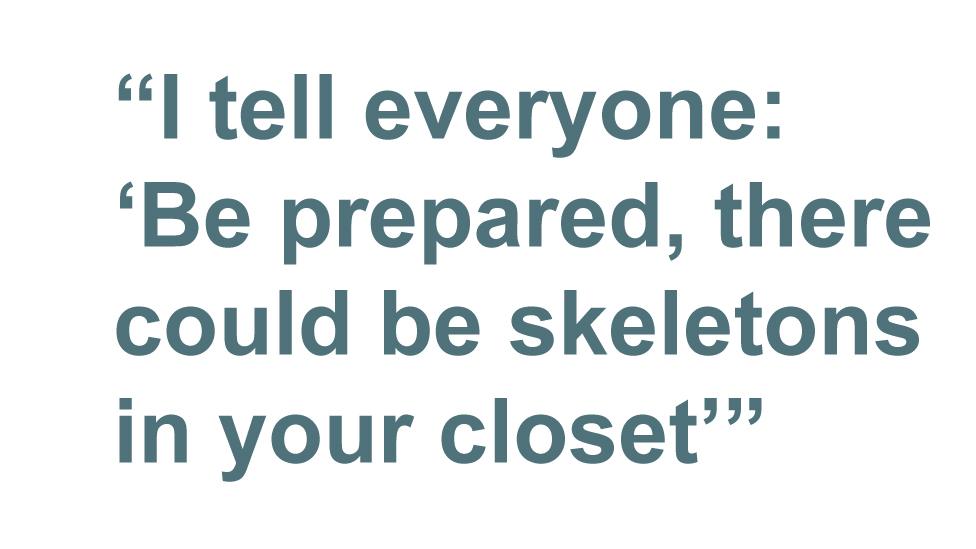
"Nobody could understand that actually finding out your daughter wasn't yours is worse than finding out your wife had an affair. A hundred times worse," he says. "I was on an infidelity support group on Facebook when one of the women in Catherine's group reached out to me to join this NPE group and they set up a father's section of it."
Lawrence told his daughter he wouldn't prevent her from contacting her biological father - after all he knew the man's name, address and phone number. But to his relief, she wasn't interested - she refers to him as "the sperm donor".
But Lawrence's son, the younger child who is biologically his, blamed his sister when their parents split up. Lawrence felt this was unfair and said so.
"I told him it's your mother and what she did that caused the divorce not what your sister did by being born," he says.
Despite what has happened, Lawrence says he is glad he took the test.
"I don't have any regrets taking the DNA tests. I'm glad I found out the truth. But I tell everybody who wants to take the DNA test, 'Be prepared for unexpected results. There could be skeletons in your closet.'"
Some, unlike Lawrence, wish the skeletons had been left undisturbed. One woman I met at the Not Parent Expected meet-up in Waco told me she would be happier if she could go back in time and un-know what she had discovered.
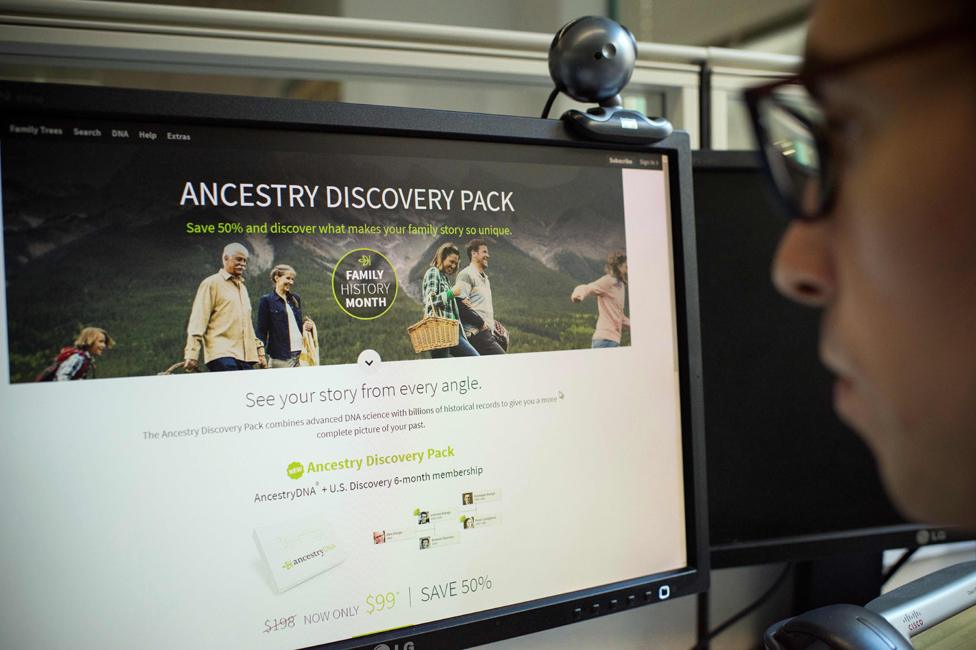
It's common to find testing kits discounted, or offered in two-for-one deals
I asked her why, and there was a long pause.
"It's OK," she said eventually. "I just didn't know I was going to cry today. I didn't plan on it. I just feel like I lost so much and I can't replace it with something good."
But there can be positives to DNA tests, too.
Bill Griffeth has visited his biological father's grave, found pictures of him, and has reached out to a niece who knew his father when she was a college student. She was happy to hear from Bill and is helping him to fill in some of the gaps in their family tree.
In Texas, Catherine St Clair is also in touch with relatives she never knew she had. Last summer, she and her half-sisters, Rayetta and Mona, met in California for a long weekend and got on like a house on fire.
Betty Jo will have her fingers crossed this Christmas when lots of people get testing kits as gifts. She hopes that a closer relative on her father's side will take a DNA test and that in time she will learn who her real father is.
It took Jenny a long time to tell her husband and children about her DNA test. In the run up to Thanksgiving this year she informed all of her siblings and admits she was "scared silly" about it. They took the news better than she expected, although one sister is still "a bit in denial" and keeps questioning the results.
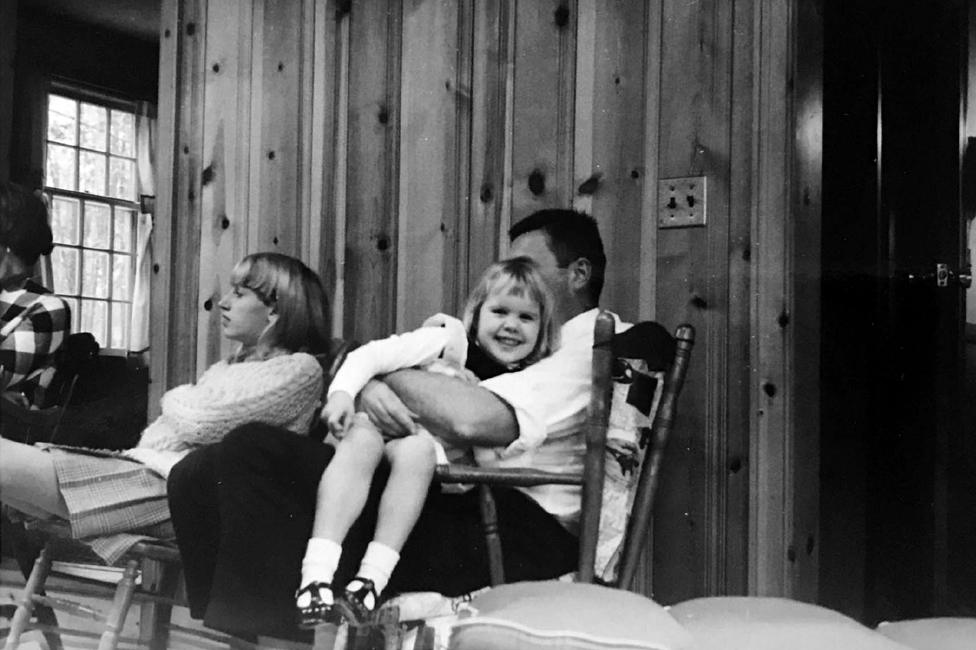
Jenny's daughter, Katie, who is in her mid 20s, understands her mother's grief. "I think I would call her a daddy's girl," she says. "I remember whenever it was my grandpa's birthday, she would change her profile picture on Facebook to one of her and him together."
She adds: "Her dad is dead, the person she thought was her dad was dead. Her mom is dead - she died last Christmas - so now she's left to deal with this huge burden on her own."
Jenny knows that she has bio-siblings. She has no plans to contact them at the moment but is aware that one day the phone may ring. "If they work it out, OK - we'll have to deal with it!"

Find out more:
Robin's DNA surprise: 'I found out my parents were swingers'
Discover more family secrets on the BBC show Cut Through The Noise, external on Facebook - watch at 22:00 GMT.

You may also be interested in:
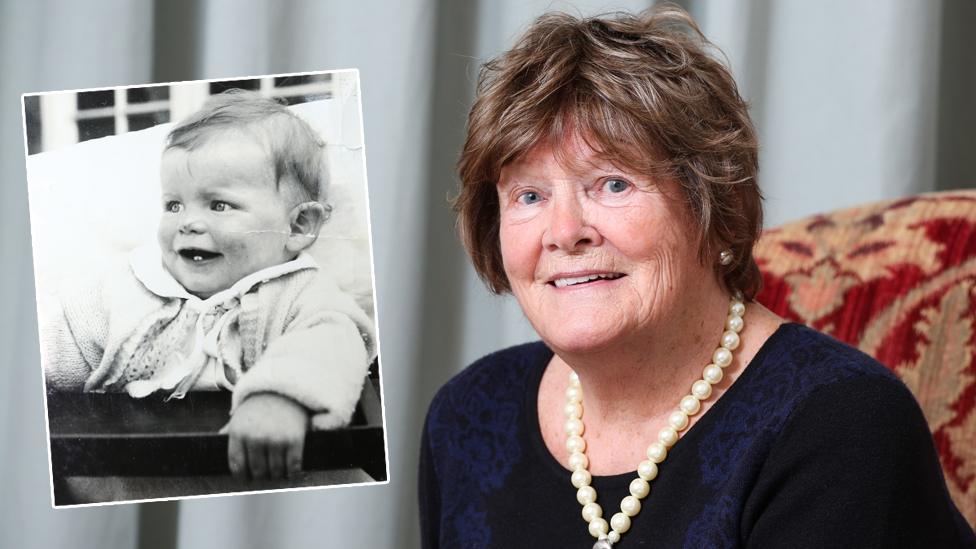
In the summer of 1937 a nine-month-old girl was hidden, with her hands tied, in a blackberry bush in southern England. She was found by sheer chance by a family of holidaymakers. Now 80, Anthea Ring has spent most of her life looking for answers.
Read: Who were my parents - and why was I left on a hillside to die?
Join the conversation - find us on Facebook, external, Instagram, external, YouTube, external and Twitter, external.
